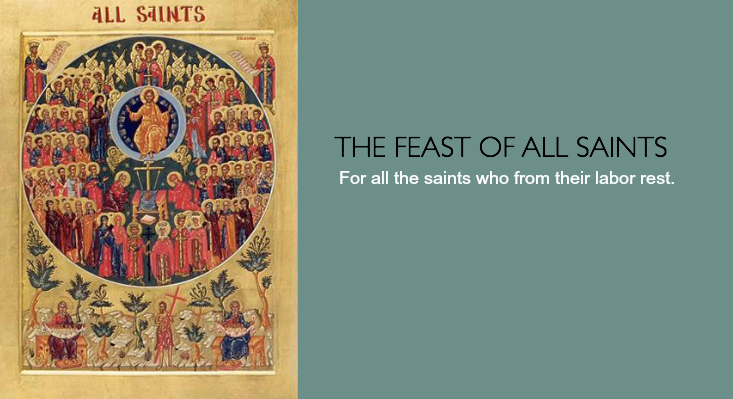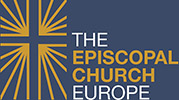Yearly on November 01 from 11/01/2015 to 11/01/2027
_________________________________________________________________________________________________________

_________________________________________________________________________________________________________
All Saints' Day (also known as All Hallows' Day or Hallowmas) is the day after All Hallows' Eve (Hallowe'en). It is a feast day celebrated on 1st November by Anglicans, Roman Catholics and other Christians.
It is an opportunity for believers to remember all saints and martyrs, known and unknown, throughout Christian history. As part of this day of obligation, believers are required to attend church and try not to do any servile work.
Remembering saints and martyrs and dedicating a specific day to them each year has been a Christian tradition since the 4th century AD, but it wasn't until 609AD that Pope Boniface IV decided to remember all martyrs. Originally 13th May was designated as the Feast of All Holy Martyrs. Later, in 837AD, Pope Gregory IV extended the festival to remember all the saints, changed its name to Feast of All Saints and changed the date to 1st November.
LISTEN TO 'FOR ALL THE SAINTS (SINE NOMINE)'
Hymn sung by the Choir of York Minster, England. From album "Best loved hymns from York Minster"
Remembering All Faithful Departed
Each year on 2 November, The Episcopal Church celebrates celebrates the Commemoration of All Faithful Departed.
What is the difference between these two observances?
“In the New Testament, the word ‘saints’ is used to describe the entire membership of the Christian community,” explains Holy Women, Holy Men (Church Publishing, 2010). “From very early times, however, the word ‘saint’ came to be applied primarily to persons of heroic sanctity.”
So, technically, All Saints’ Day, November 1, includes all deceased Christians; however, historically, there has been a strong inclination to remember and honor our personal loved ones on a separate day.
A 7/8th century AD prayer The Office of the Dead is read out in churches on All Souls' Day. Other rituals include the offering of Requiem Mass for the dead, visiting family graves and reflecting on lost loved ones. In Mexico, on el dia de los muertos (Day of the Dead), people take picnics to their family graves and leave food out for their dead relatives.
While praying for the dead is an ancient Christian tradition, it was Odilo, Abbot of Cluny (France) who, in 998AD, first designated a specific day for remembering and praying for those in the process of purification. This started as a local feast in his monasteries and gradually spread throughout the Church towards the end of the 10th century AD.
However, this practice was rejected by many Protestant reformers because the theology behind the observance was associated with the medieval doctrine of Purgatory along with the practice of paying for masses to be said for the dead to assist their souls into heaven.
At the time of the English Reformation in the mid 16th century, All Souls’ Day was integrated into the celebra- tion of All Saints’ Day in the Church of England. But by the 19th century, some parishes influenced by the Anglo Catholic Revival reinstated the observance of All Souls’ Day on November 2. The 1979 Book of Common Prayer officially restored the observance in the Episcopal Church, renaming it the Commemoration of All Faithful Departed.
Copyright © 2012 The Domestic and Foreign Missionary Society
